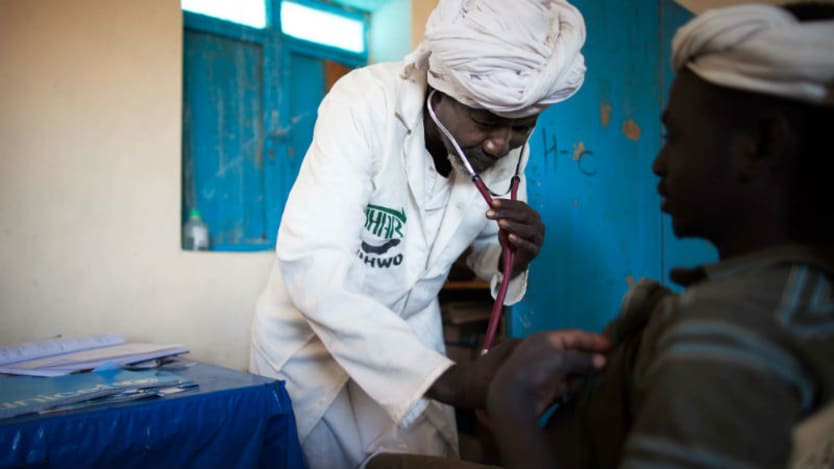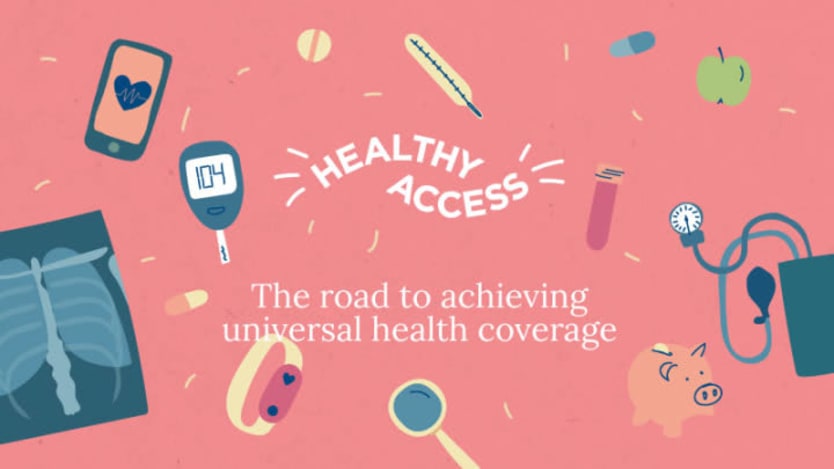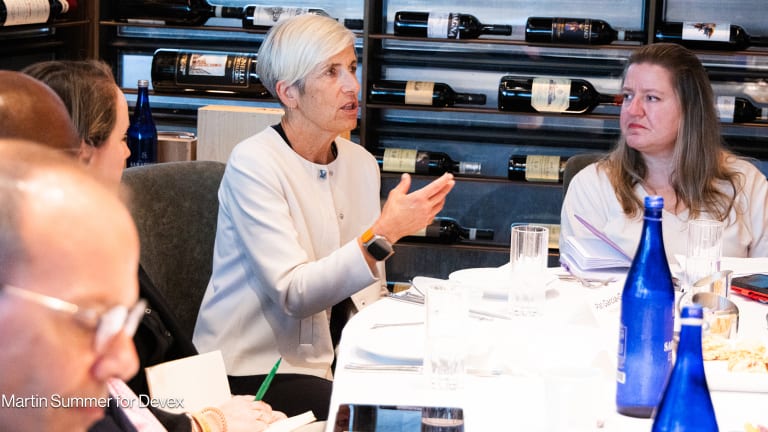
BARCELONA — Family doctors play a critical role in achieving universal health coverage, according to Anna Stavdal, president-elect of the World Organization of Family Doctors, or WONCA.
They are, after all, the first point of call, she said, speaking from her own experience as a family doctor.
During the World Health Organization’s Global Conference on Primary Health Care in October 2018, world leaders, government ministers, health funders, and practitioners reaffirmed their conviction that primary health care is a cornerstone of a sustainable health system for UHC.
“Establishing health centers and multidisciplinary teams with a responsibility to cover a determined population, that’s UHC,” Stavdal said. “Family doctors can make sure resources are spent on the right patients, at the right time, with the right specialist.”
According to WHO, a system based on strong primary care achieves better health outcomes at lower costs — its emphasis on promotion, prevention, and a people-centered approach is often cited as a highly effective and efficient way to address the main causes of poor health.
“Family doctors can make sure resources are spent on the right patients, at the right time, with the right specialist.”
— Anna Stavdal, president-elect, WONCAIn January, WONCA — a global not-for-profit professional organization representing family physicians and general practitioners — signed a memorandum of understanding with WHO, acknowledging the central role played by family medicine in achieving UHC.
Stavdal told Devex why primary care is the most efficient way to provide health care for all and how access to care can be improved.
This conversation has been edited for length and clarity.
Transitioning from your role as president of WONCA Europe to president-elect of WONCA, what do you see as the key challenges working at a global rather than regional level on primary health care issues?
Should governments see health care as an 'investment'?
In a political environment where governments often prize investments that offer more immediate returns, will the framing of health funding as a capital investment win over the argument of health as a right? Devex finds out.
Europe is diverse, in culture and in general. But also in health, health care, and health systems. On a global level, the diversity is even broader — language, customs, perceptions, compliance to organizational hierarchies. I now need to look at all of these aspects. It’s a requirement to be sensitive to these differences and to be aware of the inequities in health and health care, which are much bigger when looking at the global picture.
What kind of policies have countries that are focusing their efforts on primary health care put in place?
I can think of a few countries with huge inequalities in health: Kazakhstan and Uruguay, which have at least a political mindset and an ambition to implement primary care; Brazil and Cuba are two other good examples. [They have] community health centers, with multidisciplinary teams, with services not only tailored to those who actively ask for help but that are also pro-active. They also map out the community that the health center serves and define targets.
Africa is the world region where this is really a struggle, with few resources and few doctors. They are experiencing brain drain … but government strategies are also not directed to recruit, train, and retain their own doctors.
What they need is primary care, close to where patients live, and physicians who understand the importance of the context when they diagnose and treat. In the process of diagnosing and treating, you interpret, you guide, and you witness the stages of the disease. The most efficient way to do this is close to where patients actually live, in their own context.
“The ones that are defining indicators in health promotion and prevention are not the generalists, but the specialists.”
—My main argument speaking with politicians is that you want a healthy workforce, as this means higher production in your country. How can you achieve this? You have to define certain targets. It’s about diet, health promotion, stopping smoking, limiting the use of alcohol and other drugs, etcetera. It’s about improving the health of the population.
The problem is that the definition of power does not lie with family doctors. It lies with high-tech medicine. This is our main challenge … The ones that are defining indicators in health promotion and prevention are not the generalists, but the specialists. It’s more “sexy” to speak about high-tech medicine than about what lots of people actually need, which are the basics.
How can increased collaboration between organizations such as WONCA and WHO help strengthen health services and family medicine programs, and ultimately achieve health for all?
We have three challenges in our advocacy work with WHO, which is our most important international stakeholder. The first is to explain the nature of family medicine, and how and why it works to reduce health inequalities and improve health outcomes. We have to explain in an understandable way how it pays off to invest in primary care training, recruitment and the retention of family doctors. We have a lot of evidence, but it proves to be very difficult. This is our first challenge ... to influence policies.
The second challenge is to convince the same stakeholders that the family doctor-led multidisciplinary team is a good model to achieve UHC. To explain that even if we acknowledge that many procedures can be carried out by other specifically trained professionals, the family doctor is needed in the team to be the broadest trained medical professional.
The third is to build bridges between primary care and public health thinking, between the population-based programs and the person-centered approach.
How does improving primary health care outcomes contribute to universal health coverage?
With universal health coverage basically everything comes down to money and the allocation of resources. Primary care, or multidisciplinary teams in primary care, led by family physicians, can contribute to retaining patients on the right level. We know that a longitudinal relationship to one doctor over time, who is qualified to deliver the right personal and comprehensive care, counts for better health outcomes. Therefore, better health at a lower cost.
I think this is often one of the misunderstandings when we discuss UHC. We forget the last part of the argument, that it comes down to money and allocation of resources. This is the way we can cover populations with health care.
For a closer look at the innovative solutions designed to push for progress on universal health coverage around the globe, visit the Healthy Access series.

Search for articles
Most Read
- 1
- 2
- 3
- 4
- 5








